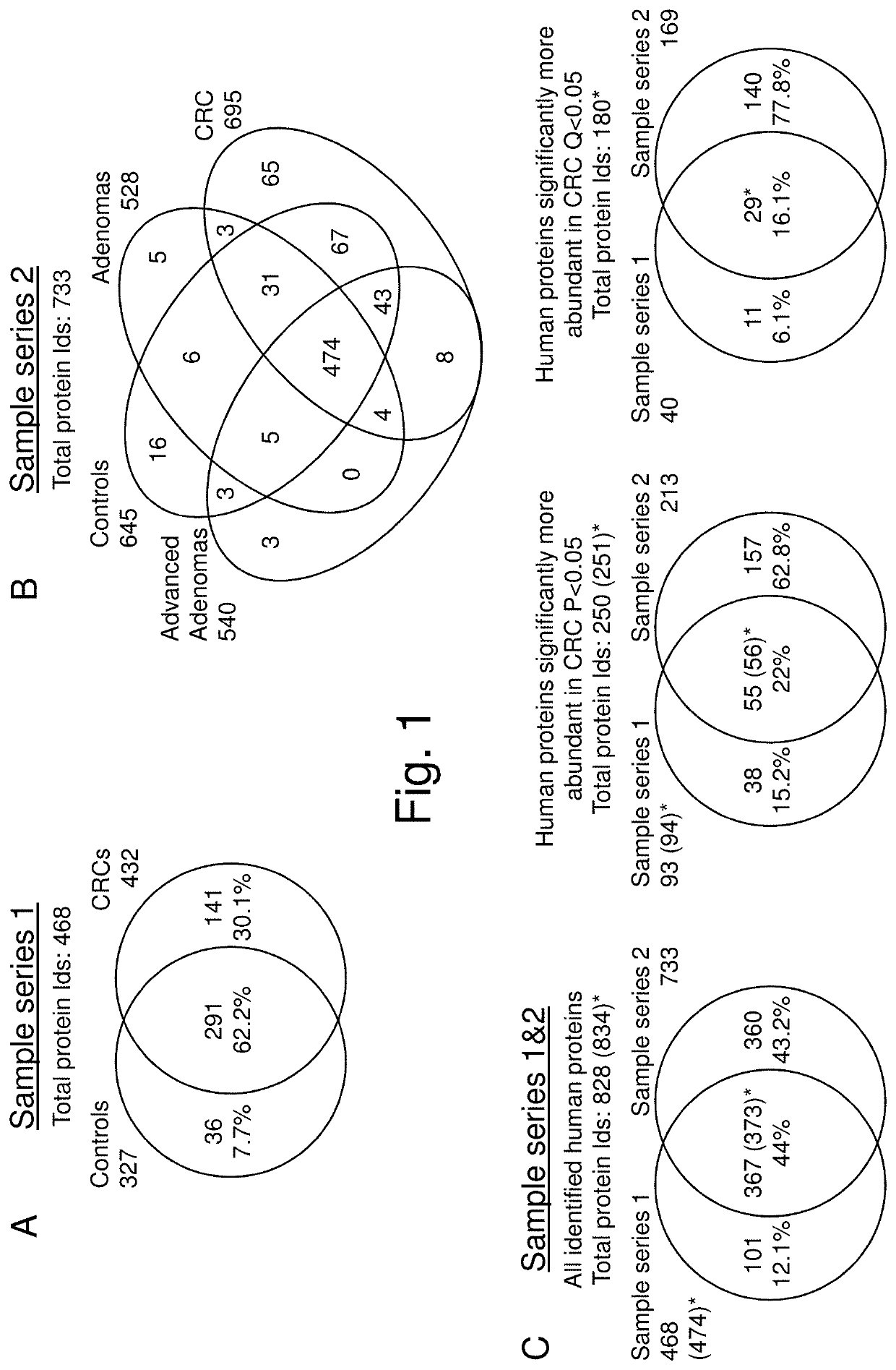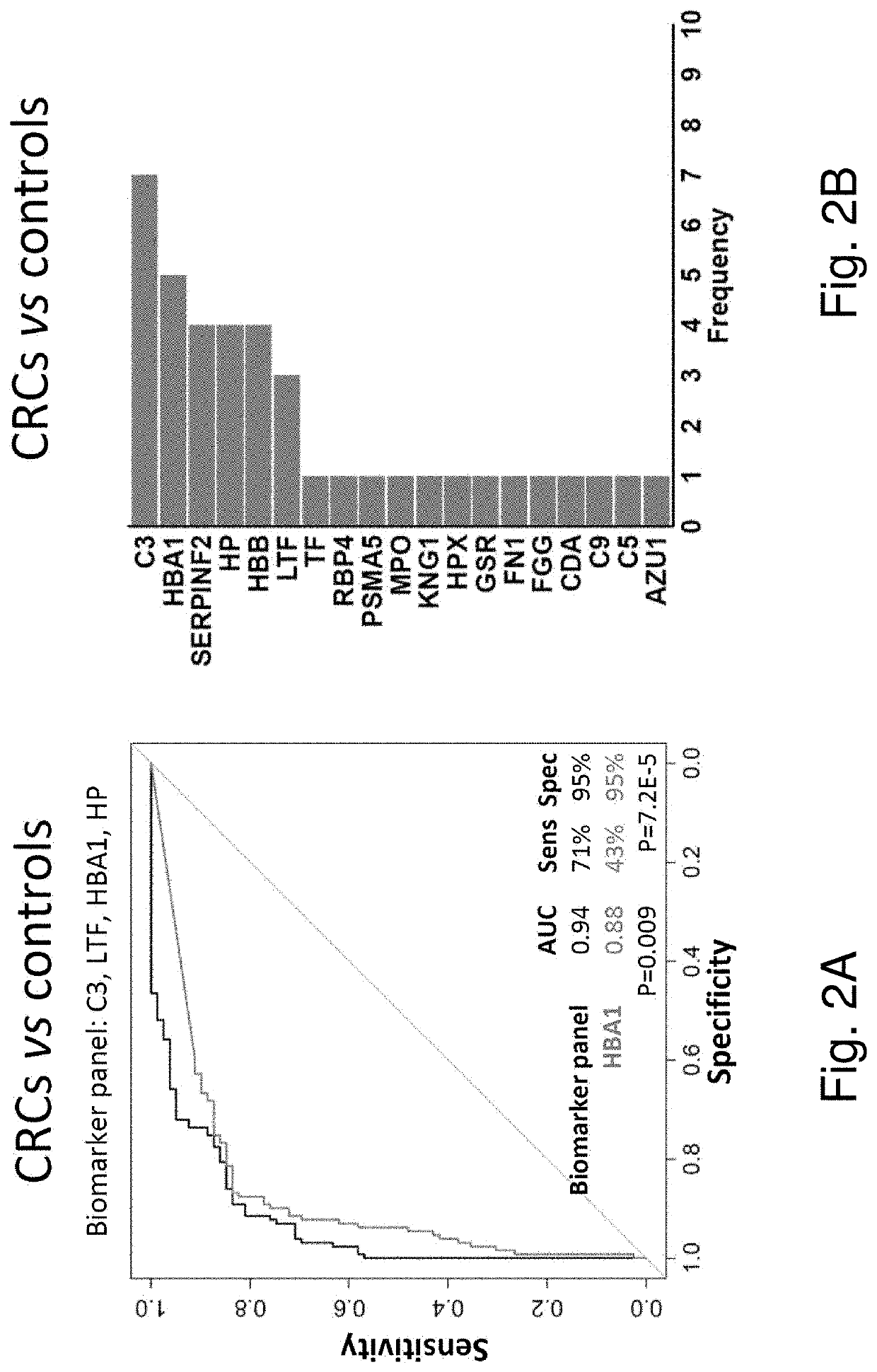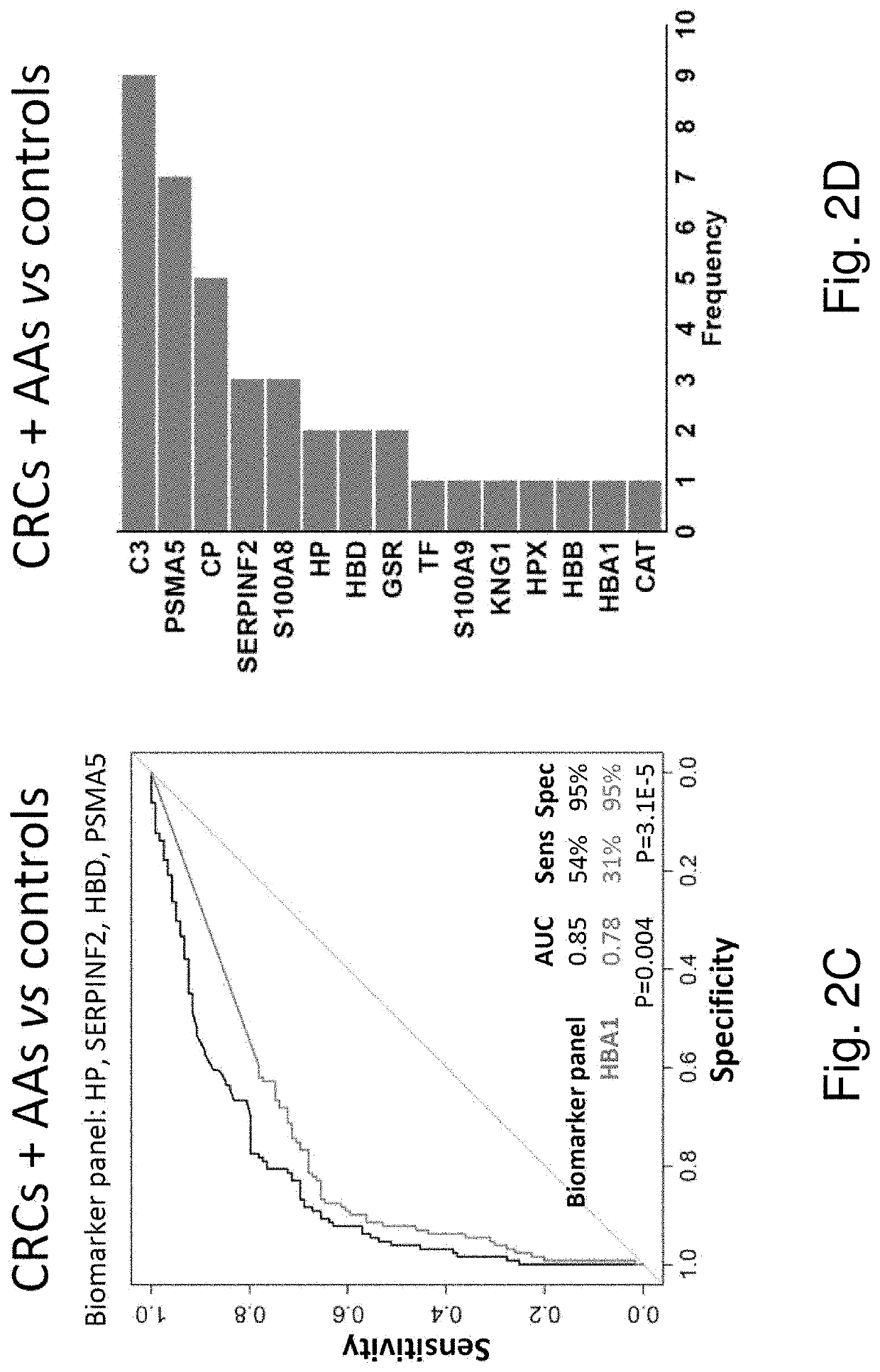Novel stool-based protein biomarkers for colorectal cancer screening
a colorectal cancer and protein biomarker technology, applied in the field of oncology, can solve the problems of validation failure, alternative protein biomarkers have failed to improve current hemoglobin-based crc stool screening tests, etc., and achieve the effects of improving the overall accuracy of stool-based tests, improving sensitivity, and improving false-positive results
- Summary
- Abstract
- Description
- Claims
- Application Information
AI Technical Summary
Benefits of technology
Problems solved by technology
Method used
Image
Examples
example 1
[0096]Methods
[0097]Sample Series
[0098]Written informed consent was obtained from all subjects who provided stool samples. The study was conducted in compliance with the institutional ethical regulations. See Table 1 for clinicopathological characteristics.
[0099]Sample Series 1:
[0100]Twenty-two stool subsamples (12 from CRC patients, 10 from subjects without colorectal neoplasia) were collected from a colonoscopy-controlled referral population between 2003 and 2006 at the VU University Medical Center in Amsterdam, The Netherlands. Samples were collected before colonoscopy or prior to surgical resection. At collection, stool samples were immediately stored at 4° C. and transferred to −20° C. within 36 hours. ˜1 g stool was sampled from each stool specimen for protein extraction, which was done as described before 1 with few adaptations. In short, samples were homogenized in a two-fold excess volume of PBS by vortexing and centrifuged at 4° C. for 15 minutes at 16.000 G. The supernatan...
example 2
Samples and Biomarker Analysis
[0147]FIT samples were obtained from 1310 individuals prior to colonoscopy. FIT fluid was taken from the sampling device with a needle and used as input for further antibody-based analysis (see below; Meso Scale Discovery (MSD) Biomarker Assays).
Following biomarker analysis 1284 samples remained with good quality data, these included samples from individuals diagnosed with colorectal cancer (CRC) (n=37), advanced adenomas (AA) (n=165), non-advanced adenomas (n=251) and individuals without colorectal neoplasia (n=831). FIT fluids were analyzed with MSD antibody-based plate assays using antibodies directed against C3, HPT, RBP4, SERPINF2, A2M, HPX, MPO, Calprotectin (S100A8 / A9), Hb and LTF. Concentrations were obtained through comparison to a calibrator (standard protein concentration). All measurements were performed in duplicate.
CART Analysis
[0148]Statistical analyses were performed in the computing environment R (R Development Core Team (2008). R: A la...
PUM
 Login to View More
Login to View More Abstract
Description
Claims
Application Information
 Login to View More
Login to View More - R&D
- Intellectual Property
- Life Sciences
- Materials
- Tech Scout
- Unparalleled Data Quality
- Higher Quality Content
- 60% Fewer Hallucinations
Browse by: Latest US Patents, China's latest patents, Technical Efficacy Thesaurus, Application Domain, Technology Topic, Popular Technical Reports.
© 2025 PatSnap. All rights reserved.Legal|Privacy policy|Modern Slavery Act Transparency Statement|Sitemap|About US| Contact US: help@patsnap.com



